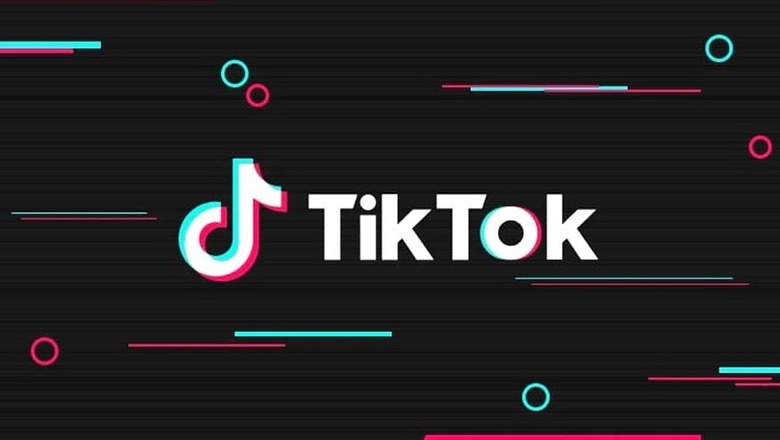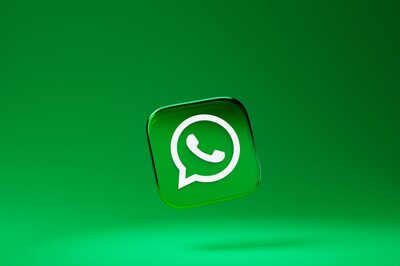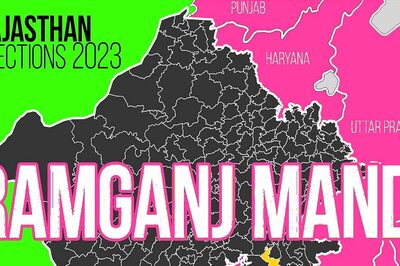
views
It’s a valid question, isn’t it? Why is everyone so obsessed with TikTok? We aren’t talking about the TikTok ‘stars’, but the rest of the Silicon Valley tech fraternity which has been noticing TikTok when they can easily ignore it and carry on. So, what’s up? Why is Reddit CEO and co-founder Steve Huffman calling “fundamentally parasitic” while speaking at the Social 2030 venture capital conference? And why is Sheryl Sandberg, COO of Facebook worried about the fact that her kids, like millions around the world, are incredibly active on TikTok?
To better understand why TikTok is worrying a lot of tech companies, we first need to ask—What is TikTok? This started out in life as an entertainment app a few years ago. The idea was to allow users to share short duration videos, made on mobile and for mobile viewing, on anything and everything that may be on their mind. Here and now, TikTok and its format has pretty much changed the definition of social media. No longer is that space defined by Facebook Lives, Facebook posts, and Twitter rants.
TikTok’s incredible popularity can perhaps be best judged by numbers—it has over 800 million monthly active users as of January 2020. Those are numbers from Hootsuite’s Digital 2020 report released last month. This is up from 300 million in January 2019, which is nothing short of an incredible spike. TikTok was the most downloaded non-gaming app in 2019. No surprise. Also, 2020 has started off from where ByteDance left off in 2019—TikTok was downloaded 104 million times on the Google Play Store and the Apple App Store in January, according to data from Sensor Tower. That’s including the Chinese version of the app called Douyin. This was more than WhatsApp, Facebook, Twitter, Instagram and whatever else may come to your mind. There have been 1.82 billion TikTok downloads till date.
No wonder then that Sandberg is worried her kids and millions of others are now spending more time on TikTok than on the Facebook app or Instagram, both owned by Facebook. “In the world of tech, we compete for every minute of your attention. Every day you pick up your phone, I mean my kids pick up the phone and they're on TikTok," she said while speaking with NBC reporter Dylan Byers. “Sure [...] they're huge, they're growing really quickly, they've gotten to bigger numbers faster than we ever did,” she added. There you have it, folks—TikTok is outpacing the growth Facebook clocked when it was in vogue.
About 60 percent of TikTok users are between the ages of 16-24, according to data from social media advertising site Wallaroo Media. TikTok surely is catching them young.
Is it perhaps the fact that the enormously successful TikTok hasn’t come from a 25-year old Silicon Valley inhabitant, which is bothering the tech giants? Instead, it is from the now 36-year old Zhang Yiming, born in Longyan in China and still lives in the country.
As for catching them young, Yiming also seems to have the finger on the pulse of what the social media savvy audience seems to want. Snap CEO Evan Spiegel said in January that he believes TikTok will surpass Instagram in the not too distant future. The reason? No social posturing (in other words, no faking it) but real talent is on show. “People who have spent a couple hours learning a new dance or think about a funny new creative way to tell a story, and they're really making media to entertain other people,” he said. Spiegel was speaking at the DLD conference in Germany.
Social media, as it was before this TikTok led disruption came around, seemed to be all about constructing a post. Constructing in the sense that it had to look good, the photo or video had to be framed perfectly, lots of editing—and all that resulted in likes, comments and perhaps created a “cool” persona for yourself in the virtual world. Often, this was completely detached from reality.
In 2019, Facebook-owned Instagram’s growth reduced to single digits for the first time—it grew at 6.7% in 2019 in the US, according to numbers by market research firm eMarketer. Over the years, Snap (formerly known as Snapchat) has been at loggerheads with Facebook for what it believed was blatant copying of its features for Instagram, Facebook and even WhatsApp apps. “We don't see copying as a limitation on the growth of our business,” he did say. Earlier this month, we had reported how TikTok is testing a user profile design that is very similar to Facebook-owned Instagram. The boot is on the other foot.
Let us now address the proverbial elephant in the room. How private is your data on TikTok? How safe is your data? Are you being surveilled on?
A pretty common allegation against TikTok is that the data we as users give to TikTok while using the app, is not private. Because well, it is a Chinese company. Let me allow Facebook’s Sandberg to illustrate her concerns better. “They're a Chinese company, if people are concerned about data, I think there's a lot to be concerned about there,” she said while speaking with NBC. This is the same Facebook which has been leaking the user data of millions over the past few years, in breach after breach after breach. The same Facebook that has been pulled up by lawmakers around the world for being very inconsiderate with the privacy requirements of user data. The same Facebook that is using all possible methods to curate adverts for you across its apps. Quite ironic, considering the Cambridge Analytica scandal is still fresh in our minds and the company was at the receiving end of a $5 billion fine by the Federal Trade Commission over privacy concerns just last year—incidentally, the largest fine the agency has issued, yet.
Then there is the Reddit CEO and co-founder Steve Huffman. “Maybe I’m going to regret this, but I can’t even get to that level of thinking with [TikTok], because I look at that app as so fundamentally parasitic, that it’s always listening, the fingerprinting technology they use is truly terrifying, and I could not bring myself to install an app like that on my phone,” he reportedly said at the Social 2030 venture capital conference.
There may very well be a point of debate there. Researcher Matthias Eberl on Rufposten had detailed how ByteDance uses what are known as fingerprinting techniques to track who is sharing a video and who is watching it—this is particularly important for shortened URLs that get shared on other social media platforms and shared in groups on instant messaging apps. ByteDance says this is for identifying malicious user behavior.
Whether that clarification is correct or not, we will have to accept it in the same spirit as when Facebook said it had no idea Cambridge Analytica was collecting user data by the bucketloads. Just because ByteDance is a Chinese company doesn’t make it any less innocent or more guilty than a rival based in the US or Europe.
We may argue about it all we want, but the reality is as clear as it can be. And it is serious stuff for people. Just the other day, Jason Clark, who has more than 403,000 followers as @jasontodolist on TikTok nearly drowned after getting trapped under ice while filming a stunt for his TikTok video. American rapper Doja Cat, or Amalaratna Zandile Dlamini, in her new single Say So is recreating a dance that was made popular in a video by TikTok user Haley Sharpe. In fact, Sharpe is part of the video for the single—and she has more than 1.2 million followers on TikTok. In India, actor and fashion icon Deepika Padukone clocked more than 1.2 million followers on the platform in less than 12 hours. The world is on TikTok.




















Comments
0 comment